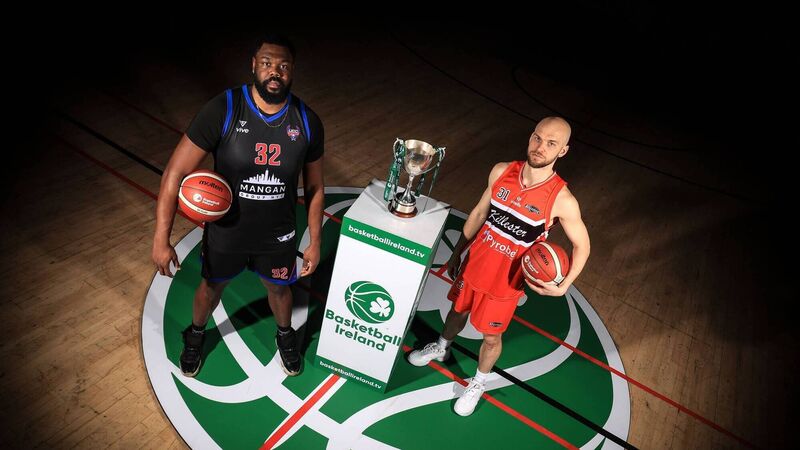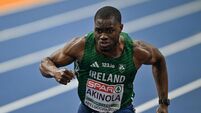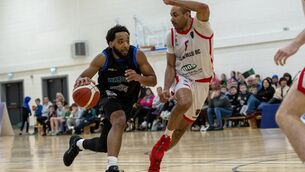Glory be to the enduring faith of Demons and Killester

UCC Demons’ Elijah Tillman and Killester’s Paul Dick take part in media day at the National Basketball Arena ahead of Saturday's Pat Duffy National Cup, which is live on TG4 from 1945 Mandatory Credit ©INPHO/Dan Sheridan
Glory be to the Fathers, and to the sons, and to schools like Holy Faith. As it was in the beginning, is now, and possibly ever shall be, their worlds seemingly without end.
The first club to win the men’s national league in this country were Blue Demons from Cork. On the first weekend of April in 1974, they headed up to Dublin for a series of back-to-back games in the Oblate Hall, beating Killester on the same Saturday evening Abba won the Eurovision. “At the time we just didn’t know how to stop someone as powerful as Andy Houlihan,” says Killester’s Martin Grennell.











